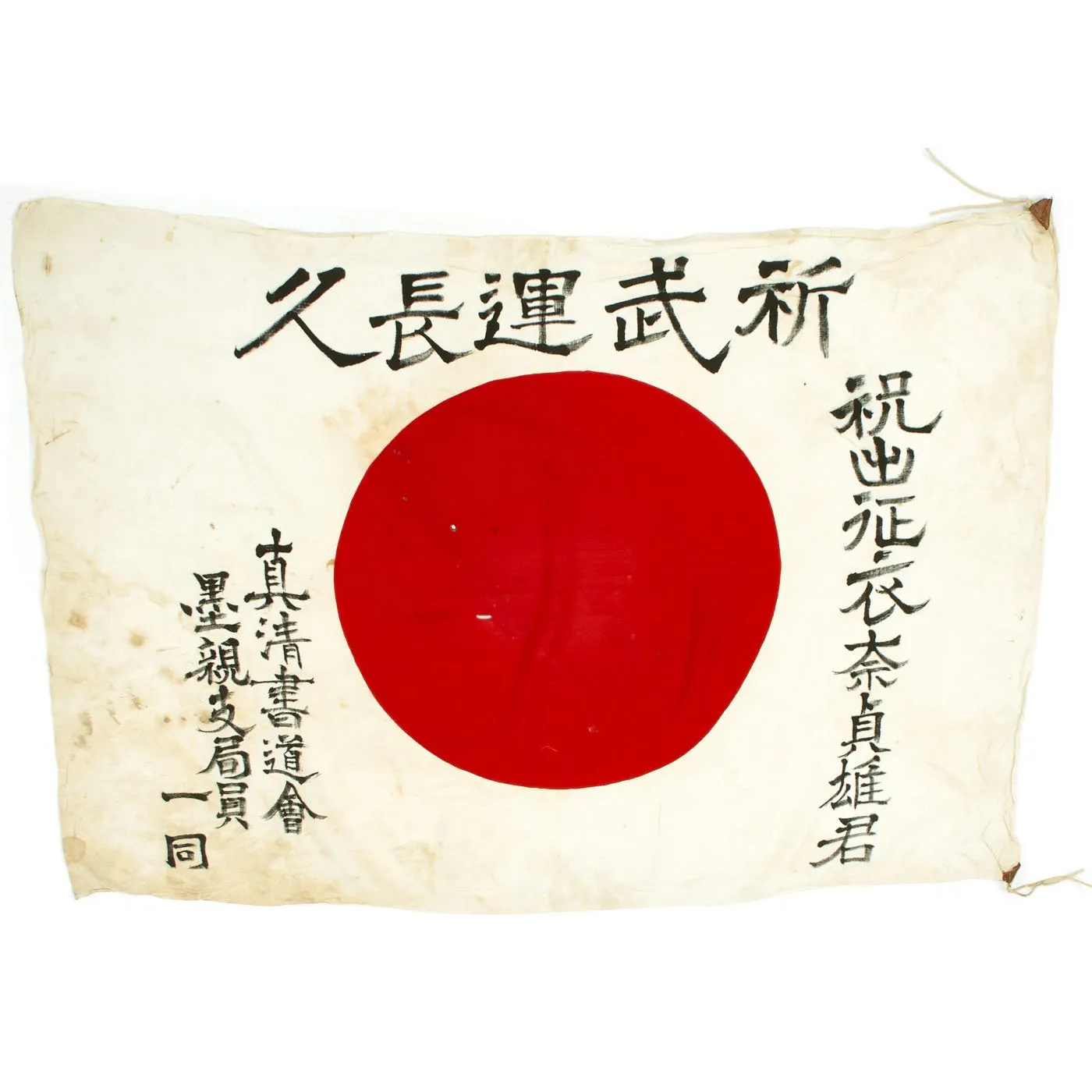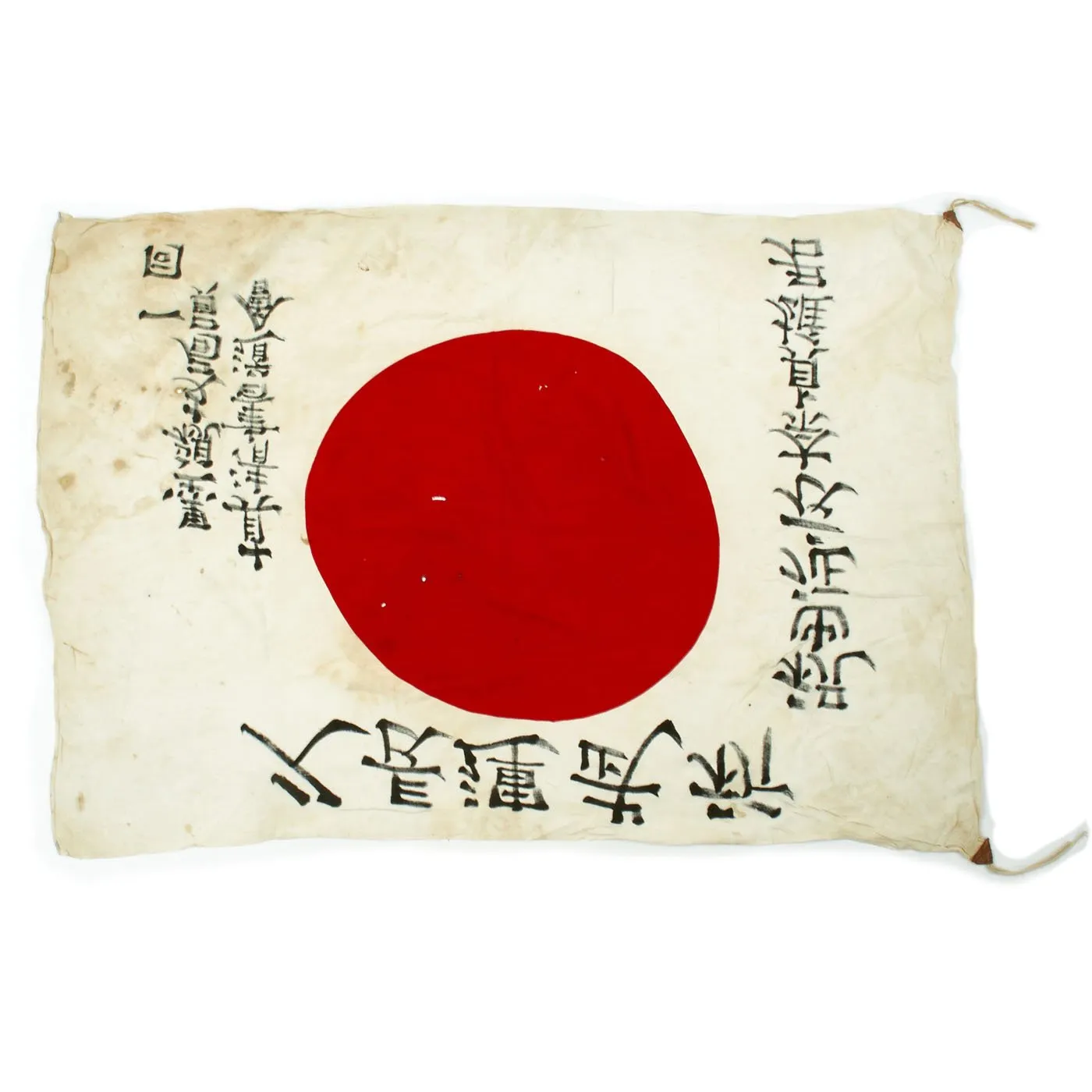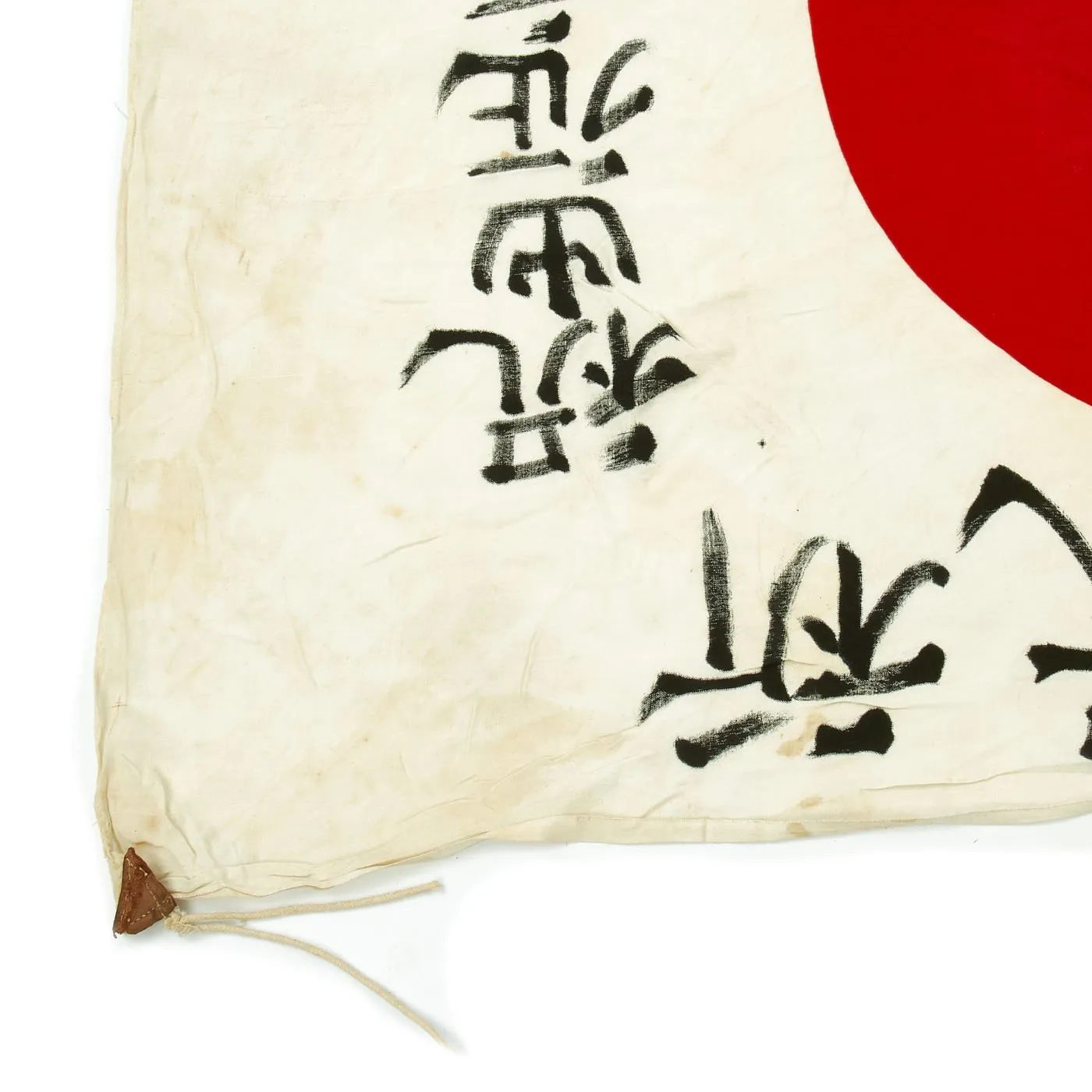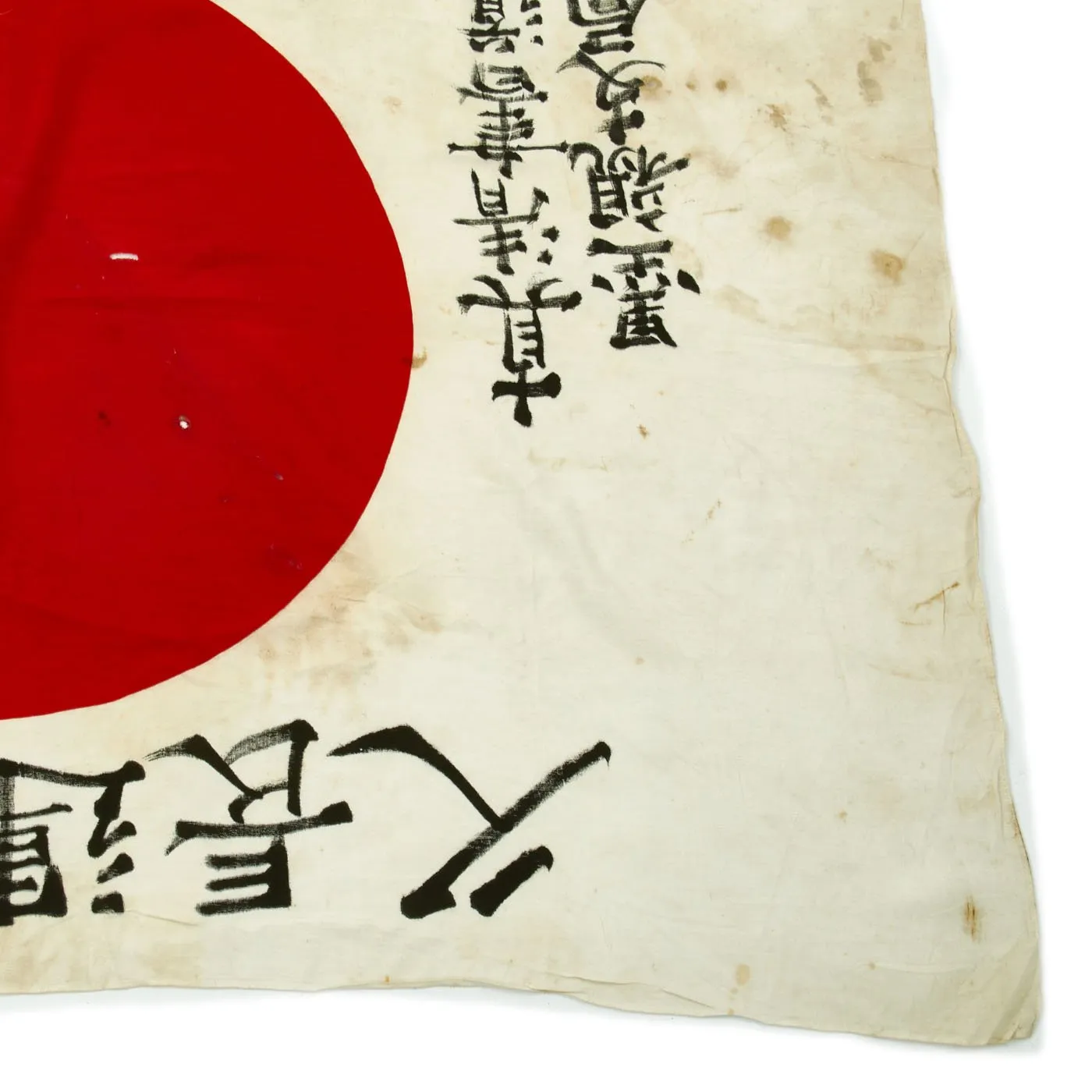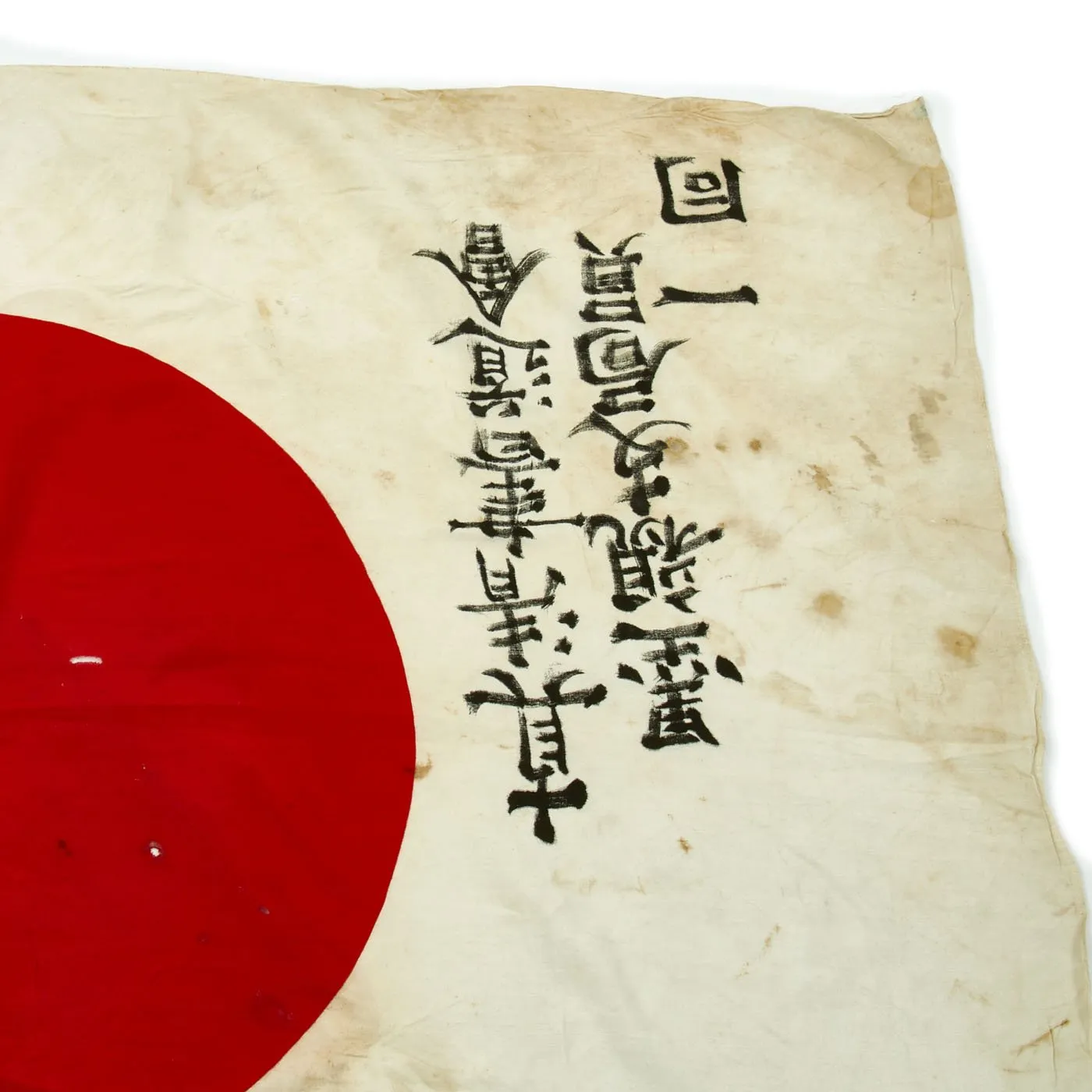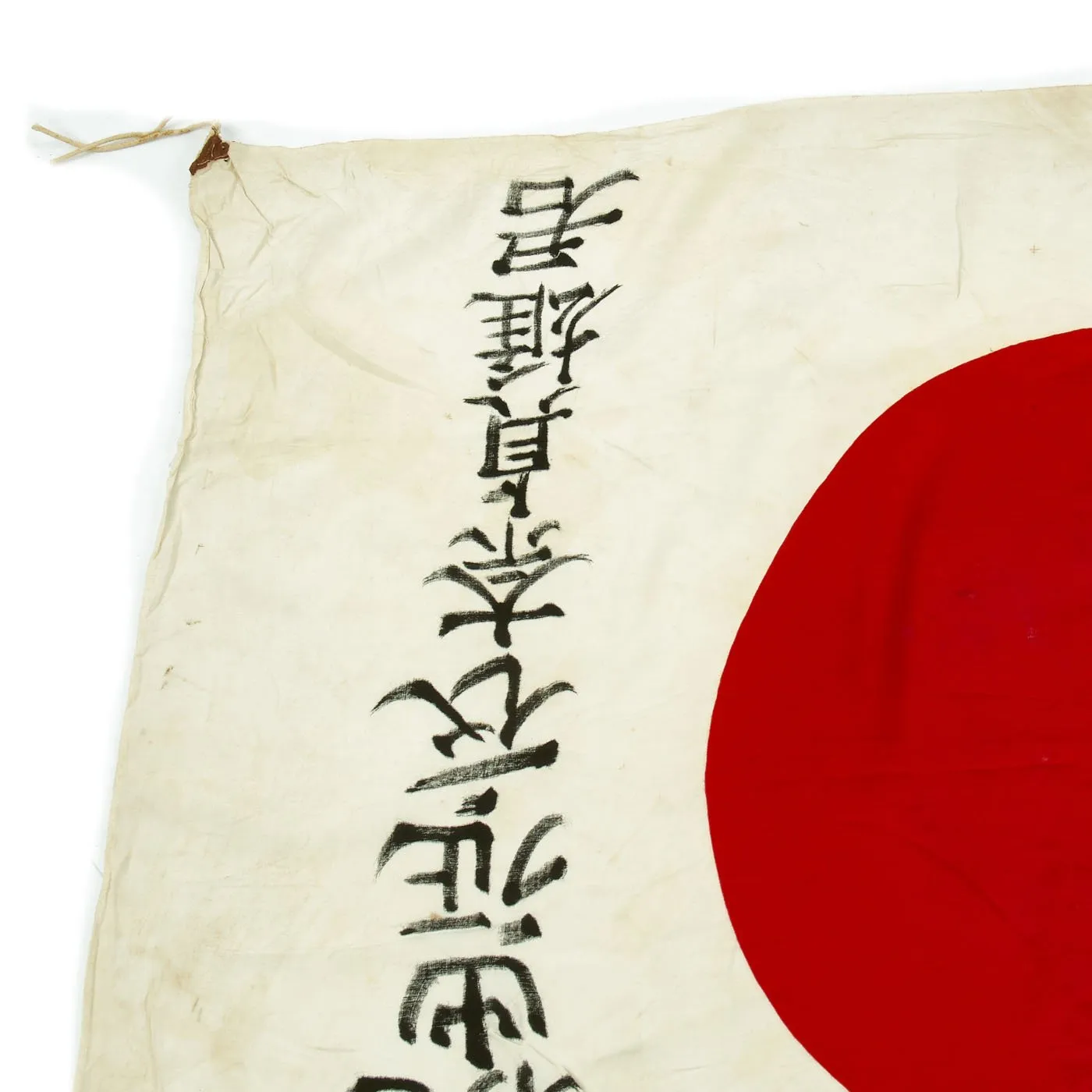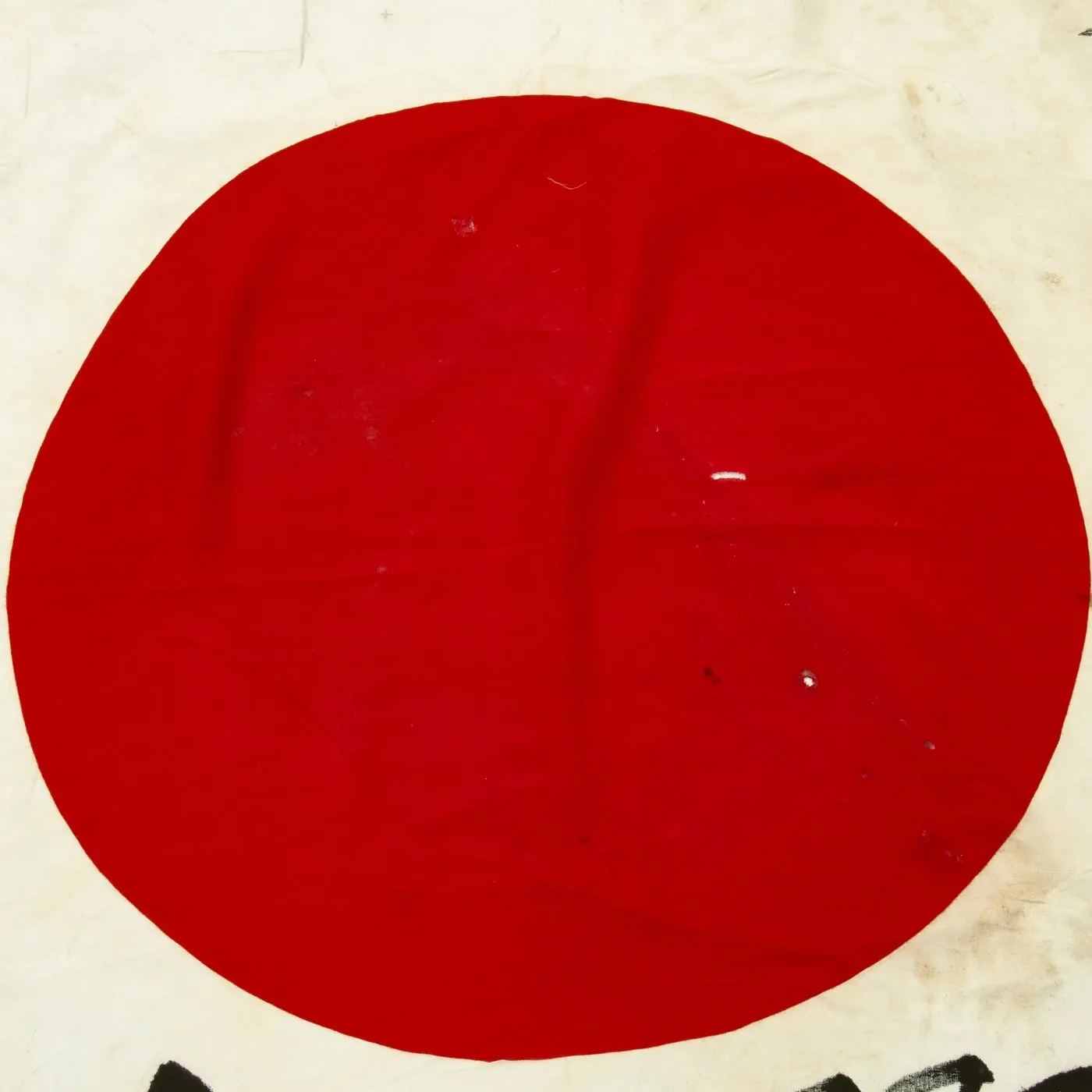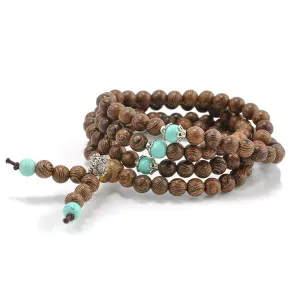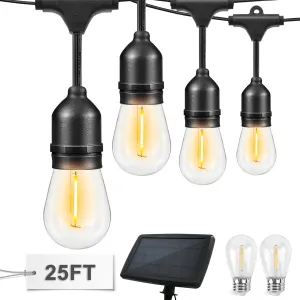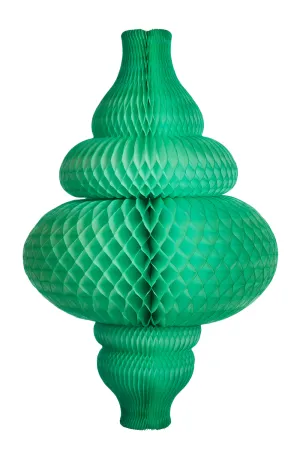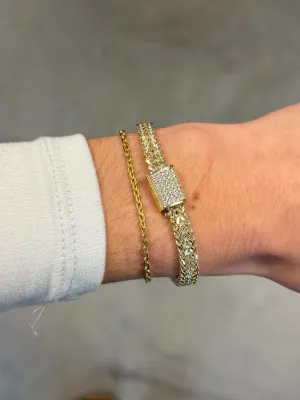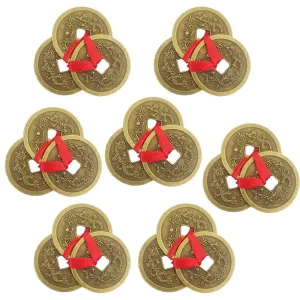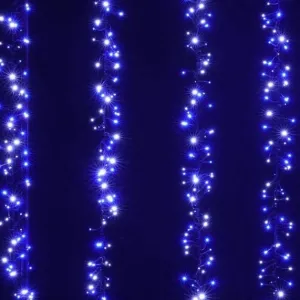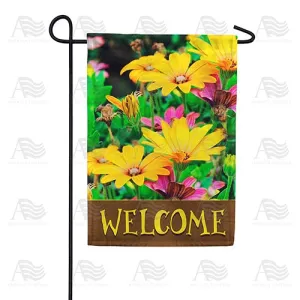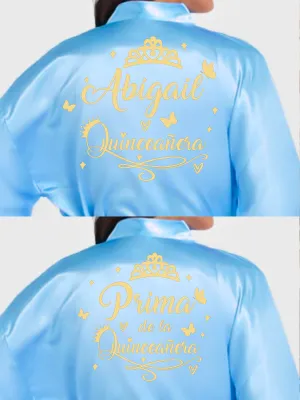Product Details
+Original Item: One-of-a-kind. Just purchased from a Pacific War collection at an estate sale! This hand painted flag is marked with several phrases in Japanese, which usually translate as "good luck in battle" or similar. As with most good luck flags, the top is marked with 久 長 運 武, which reads Bu un Chou kyu ("May your military fortunes be long lasting.") on the upper right. To the right is the character 祈, which means "Prayer", so this particular flag is praying for good luck in battle. The flag measures approximately 40" x 29", and is made of linen or cotton cloth, with the red "sun" dyed into the middle. Flag is in very good condition and is the real deal: a genuine USGI "bring back"!
The flag itself has some stains and holes, as well as overall age toning. The writing is still quite legible, and this would make a fine display piece for a wall or glass table. The leather corner reinforcements show wear, and there is some fabric pulling around the corners, so this flag looks to have been hanging for a while. Both hanging ties are still intact.
Ready to display!
The Good Luck Flag, known as hinomaru yosegaki (日の丸 寄せ書き) in the Japanese language, was a traditional gift for Japanese servicemen deployed during the military campaigns of the Empire of Japan, though most notably during World War II. The flag given to a soldier was a national flag signed by friends and family, often with short messages wishing the soldier victory, safety, and good luck.
The Japanese call their country's flag hinomaru, which translates literally to "sun-round", referencing the red circle on a white field. When the hinomaru was signed, the Japanese characters were usually written vertically, and radiated outward from the edge of the red circle. This practice is referenced in the second term, yosegaki, meaning "sideways-writing". The phrase hinomaru-yosegaki can be interpreted as "To write sideways around the red sun", describing the appearance of the signed flag. This particular example completely unique is written in old KANJI the writing are mainly Japanese names of this soldier's family and friends with quotes and phrases.




